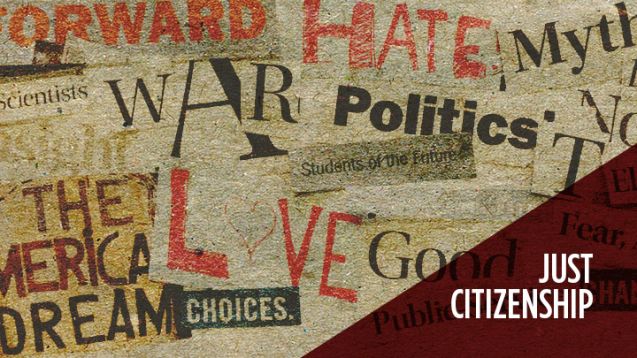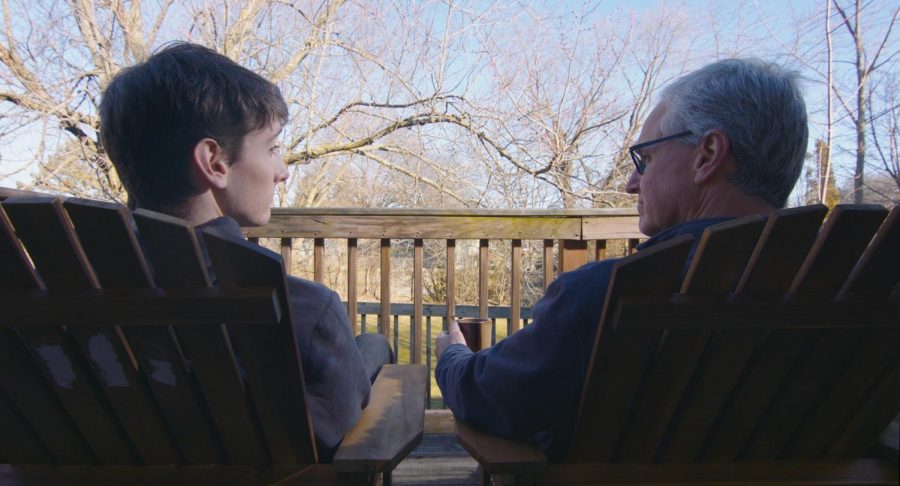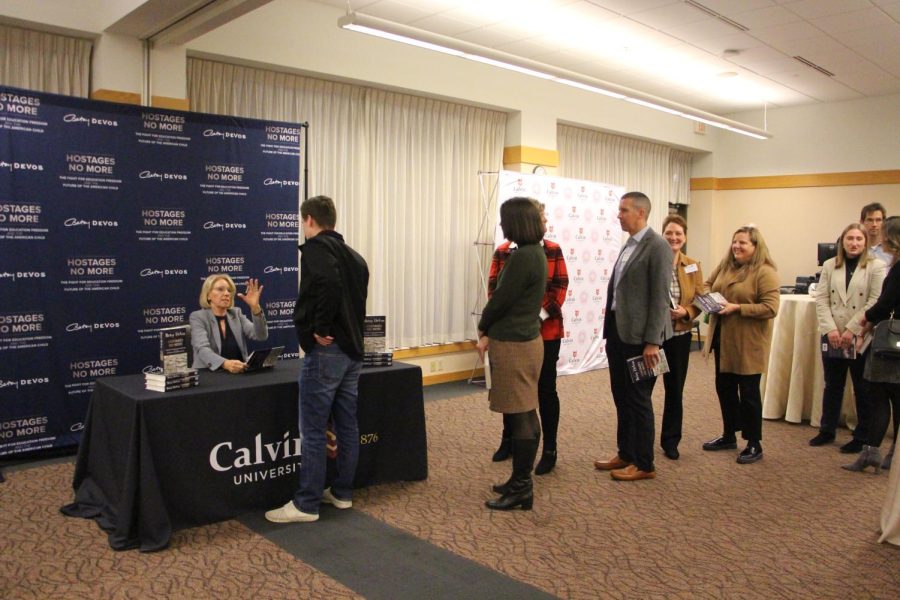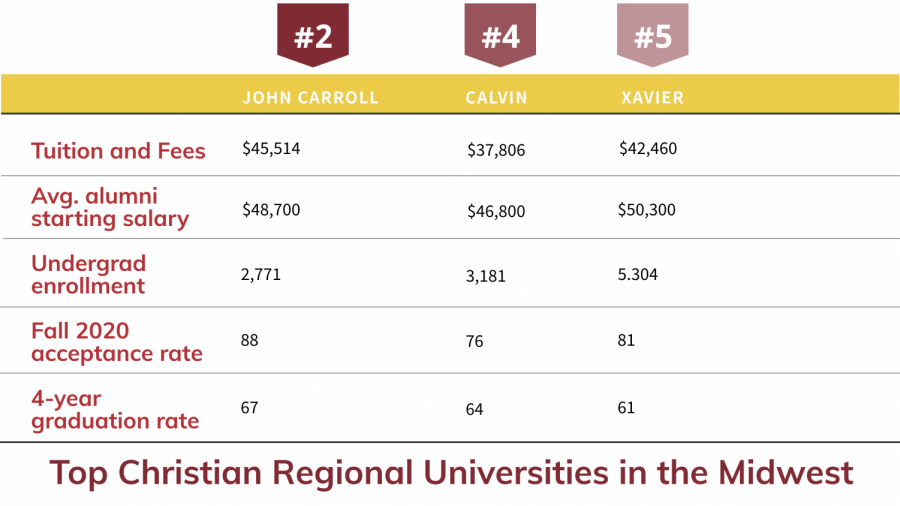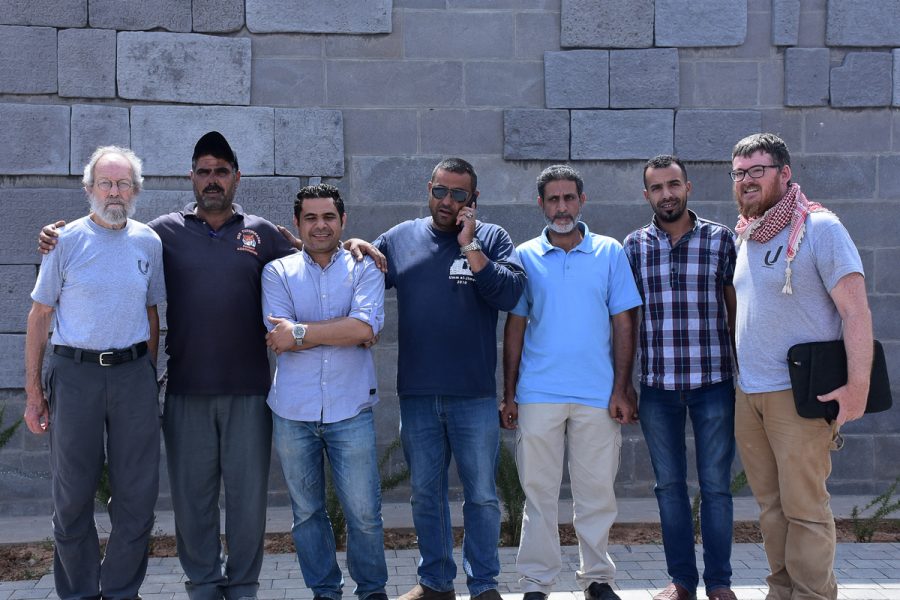The Syrian refugee crisis has been in the minds and conversations of many across campus throughout the last several months.
While many are aware of the crisis, understanding it is an entirely different manner. “Scramble for Syria: What’s Next in the Middle East?” was the theme of last Monday’s Just Citizenship seminar where Calvin professors Bert de Vries, Doug Howard and Becca McBride shared insights on understanding the Syrian crisis.
Professor Bruce Berglund, who moderated Monday’s discussion, said one theme of the talk was the challenge of seeing Syria restored to a functioning state: “For that to happen, the international community will have to invest a lot of resources and people into Syria, including peacekeeping troops. And for that investment to happen, there needs to be real cooperation among the U.S., Russia, Turkey and other stakeholders — and that doesn’t look possible right now.”
Professor Doug Howard, from the History Department, stressed the complexity of the ongoing Syrian War, which has lasted six years. The war has broad regional repercussions and instigated the refugee crisis.
“The Syrian conflict is a difficult issue for neighboring countries because 40 percent of the population is internally displaced or in neighboring countries,” said Howard.
Howard is especially familiar with how the Syrian conflict is impacting Turkey. He said that 2.8 million Syrian refugees have migrated there, and Turkey is struggling to provide education for and meet the basic needs of the migrants. Turkey’s political environment, military conflicts and general instability only complicate the Syrian crisis.
Howard concluded by acknowledging the importance of understanding the Syrian crisis in specific local contexts.
Professor Bert DeVries, also from Calvin’s history department, expressed the different levels of economic development brought on by globalization. According to DeVries, the economic gap between social classes is leading to the disintegration of Middle East societies.
DeVries went on to say that international rivalries outside of Syria — including the Israeli-Palestinian conflict — continue to influence the Syrian conflict.
Professor Becca McBride of the political science department was the third panelist to speak on Monday. McBride described and contrasted Russia’s approach to Syria with the United States’ approach.
According to McBride, Russia became involved in Syria “to signal to world that they can project military power far beyond their belt of security.” Russia also wanted to use Syria as an opportunity to force the West to treat them with respect.
McBride said that the main difference between Russia’s perception of the Syrian crisis and the United States’ perception is that Russia sees the crisis as an opportunity to display power and is interested in preserving the current regime, while the United States sees the crisis as a humanitarian issue and terrorist threat that must be controlled.
“As Professor McBride pointed out, the US government thinks of Syria principally in terms of potential terrorist threats,” said Berglund. “But the larger issue is the flood of refugees who have come out Syria. As of right now, there are 4.8 million Syrian refugees who have fled their country. Finding a safe place for these refugees is not only a problem of regional stability, it’s also a moral problem.”
Berglund said that discussions about the Middle East and Syria are relevant to Calvin audiences. “Syria might seem like a distant problem that we can tune out, but it has had an impact on the U.S. and it will continue to. … Each day, there are new stories of individuals being detained while entering the U.S. Last week, an Australian children’s writer and a French historian of the Holocaust were both detained for hours at U.S. airports. This wall of suspicion at American airports is a direct result of the administration’s fearful approach to the Syrian refugee problem.”



